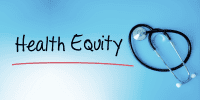Fred Harrison, a 68-year-old African-American male on the medical floor, is recovering from a stroke he suffered yesterday. During your initial shift assessment, he asks to go home, stating he can’t afford to stay in the hospital. He seems a bit agitated and complains of a headache. You grow more concerned when you finds his blood pressure (BP) is 184/112 mm Hg. His history reveals longstanding hypertension and chronic renal disease. Coupled with his recent stroke, his BP and medical history lead you to suspect he’s in a hypertensive crisis.
History and assessment hints
You measure Mr. Harrison’s BP in his other arm and find it similar to the first reading. If systolic pressure were significantly different between arms (more than 20 mm Hg), you’d worry about a possible aortic dissection. Speaking in a calm voice, you question him and learn he stopped taking prescribed antihypertensives a week ago because they were too expensive. He remains alert and oriented, with no evidence of end-organ failure, such as chest pain, headache, or shortness of breath; this tells you he hasn’t progressed to a hypertensive emergency. Nonetheless, you know his situation calls for immediate action and you notify the hospitalist at once.
On the scene
In hypertensive crisis (also called hypertensive urgency), the initial goal is to use conventional oral medications to reduce mean arterial pressure safely over 24 to 48 hours, and no more than 25% in the first 24 hours. When the hospitalist arrives, he prescribes 25 mg captopril (an angiotensin-converting enzyme inhibitor with a 15- to 30-minute onset), with orders to give an additional dose within 90 to 120 minutes if the patient’s BP doesn’t respond as expected. He also may consider prescribing a calcium channel blocker, such as nicardipine, as an alternative arterial vasodilator. To check for evidence of myocardial ischemia, he orders an electrocardiogram.
You monitor Mr. Harrison’s BP while maintaining a quiet environment and observing for signs and symptoms of a further BP rise and end-organ effects. End-organ damage is the hallmark of a hypertensive emergency; you’re prepared to immediately transfer the patient, if needed, to an intensive care unit where he can receive I.V. antihypertensives. In the meantime, you continue to monitor him to help prevent and detect a too-rapid BP decrease.
Outcome
Mr. Harrison responds well to captopril; when you reassess him 30 minutes after the first dose, you find his BP has dropped to 162/94 mm Hg. You notify the hospitalist of his progress and start him on his routine b.i.d. dose. In your change-of-shift report, you include instructions to monitor the patient for adverse captopril effects, including hypotension, mental status changes, and decreased urine output. The next day, you find his BP has returned to baseline.
Education and follow-up
Common causes of hypertensive urgency include stroke and abrupt cessation of antihypertensive drugs. Physiologic triggers include failure of normal autoregulation and an abrupt rise in systemic vascular resistance (SVR). BP regulation is affected by several mechanisms modulated by the vascular endothelium. For instance, vascular tone is affected by stretch of the vessel wall during a significant BP rise, which causes release of humoral vasoconstrictors and activates the renin-angiotensin system. This triggers a cycle of further SVR increases and exacerbation of hypertension. If BP isn’t normalized efficiently, the brain, heart, and kidneys may suffer damage.
Your prompt recognition of hypertensive urgency and quick action helped Mr. Harrison avoid these catastrophic effects. When providing education, you stress the importance of adhering to his drug regimen, regularly monitoring BP at home, and keeping follow-up appointments. Collaborating with the case manager, you help him find affordable generic forms of his prescribed antihypertensives.
Visit www.AmericanNurseToday.com for a complete list of references.
An author and keynote speaker on transformational choices, Michelle Fournier is a healthcare consultant with J.A. Thomas & Associates in Atlanta, Georgia.


















